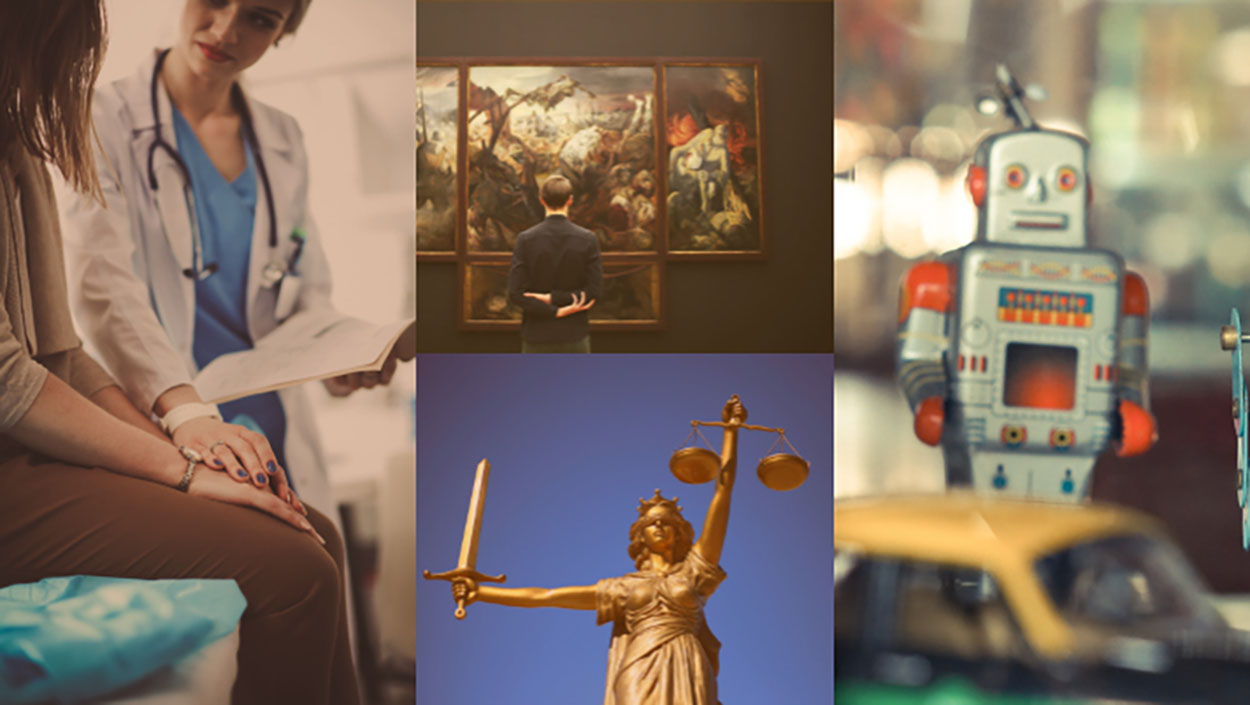1. Creative Arts and High-End Craftsmanship While AI has made strides in generating art and music, the essence of creativity remains a human domain. The unique perspectives, emotional depth, and personal narratives that artists and craftsmen bring to their work are elements that AI cannot authentically reproduce. Handcrafted items, such as bespoke furniture or custom jewelry, carry a personal touch and story that machines lack.
6 Industries AI Can’t Touch—Yet!

AI’s Reach Has Limits: Six Industries Likely to Remain Human-Centric As artificial intelligence (AI) continues to permeate various sectors, concerns about job displacement and automation are on the rise. However, not all industries are equally susceptible to AI’s influence. Several fields still rely heavily on human intuition, emotional intelligence, and hands-on expertise—qualities that machines have yet to replicate effectively.
Give Me Five Podcast
2. Hospitality and Fine Dining The hospitality industry thrives on personal interaction and exceptional service—areas where AI falls short. Guests at luxury hotels or fine dining establishments expect a level of warmth and attentiveness that robots cannot provide. While AI can assist with bookings or customer data analysis, the core experience relies on human connection and empathy.
3. Therapeutic and Counseling Services Mental health care is deeply rooted in human empathy and understanding. Therapists and counselors build trust and rapport with clients, navigating complex emotions and personal histories. AI may offer tools for monitoring or administrative tasks, but it cannot replace the nuanced human interactions essential in therapy sessions.
4. Traditional Marketing and Direct Mail Campaigns Despite the digital age, traditional marketing methods like direct mail campaigns remain effective. Physical advertisements offer a tactile experience and a sense of personal touch that digital ads often lack. Small businesses, in particular, benefit from these methods to engage local communities and build relationships.
5. Skilled Manual Labor and Trades Trades such as plumbing, electrical work, and construction require on-the-spot problem-solving and adaptability—skills that AI has yet to master. These professions involve unpredictable variables and hands-on expertise that machines cannot replicate. The human ability to assess situations and make real-time decisions remains irreplaceable in these fields.
6. Legal Services for Complex Cases While AI can assist with document review and legal research, complex legal cases demand human judgment and ethical considerations. Attorneys interpret laws within societal contexts, negotiate settlements, and build persuasive narratives—tasks that require a level of understanding and intuition beyond AI’s capabilities.
In summary, while AI continues to advance and integrate into various sectors, certain industries remain resilient due to their reliance on human qualities that machines cannot emulate. These fields underscore the enduring value of human expertise, creativity, and emotional intelligence in an increasingly automated world.

